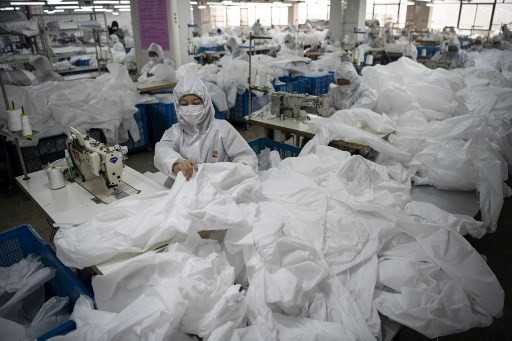Asia's factory activity plunges as coronavirus shock deepens
02 April, 2020

Factory activity contracted sharply across almost all of Asia in March as the coronavirus pandemic paralyzed financial activity across the globe, with sharp falls in export power-houses Japan and South Korea overshadowing a modest improvement in China.
Manufacturing gauges also tumbled in Indonesia, Vietnam and the Philippines, Purchasing Managers' Index (PMI) surveys showed on Wednesday, underscoring the widening damage brought by the pandemic which has infected more than 700,000 people, upended supply chains and resulted in city lockdowns worldwide.
China's factory activity improved slightly a lot more than expected in March after plunging a month earlier, an exclusive business survey showed, but growth was marginal, highlighting the powerful pressure facing businesses as domestic and export demand slumps.
While factories in China little by little restarted operations after lengthy shutdowns and a fall in virus cases allowed the united states to start out relaxing travel restrictions, activity in South Korea shrank at its fastest pace in 11 years as many of its trading partners imposed dramatic measures to curb the virus' spread.
"If you go through the Korean numbers, they're fairly bad ... They're more likely to get worse still because Korea will be reliant on parts from Europe and america," said Rob Carnell, Asia-Pacific chief economist at ING in Singapore.
"[Policymakers] need to accept the inevitable that there surely is a massive global pandemic here, there can be an outbreak in nearly every country globally and certainly inside our region, which gets to levels that if they don't take very dramatic action, it's going to get much worse," he said.
Japan's factory activity contracted at the quickest pace in in regards to a decade in March, increasing views that the world's third-largest economy is probable already in recession.
Another "tankan" survey by the lender of Japan showed on Wednesday that business sentiment soured to a seven-year low in the 90 days to March, as the outbreak hit sectors from hotels to carmakers.
"The tankan clearly shows a sharp deterioration in business sentiment and confirms the economy is already in recession," said Yasunari Ueno, chief market economist at Mizuho Securities.
China's Caixin/Markit Manufacturing Purchasing Managers' Index (PMI) rose to 50.1 last month, from February's record low of 40.3, and just a notch above the 50-mark that separates growth from contraction.
South Korea's IHS Markit PMI plunged to 44.2, its lowest since January 2009 when the economy was reeling from the global financial meltdown. The index was 48.7 in February.
Japan's PMI fell to a seasonally adjusted 44.8 from a reading of 47.8 in February, its lowest since April 2009. The ruling coalition has called on the government to secure a stimulus package worth at least 60 trillion yen ($553 billion), with 20 trillion yen in direct spending.
Policymakers around the world, including in Asia, have announced massive monetary and fiscal stimulus measures to try to mitigate the economic fallout from the pandemic, keep cash-started businesses afloat and save jobs.
But many measures have been short-gap steps to manage the immediate harm to corporate funding and shore up financial systems.
The International Monetary Fund has said the pandemic had been driving the global economy into recession, contacting countries to respond with "very massive" spending to avoid bankruptcies and emerging market debt defaults.
Source: www.thejakartapost.com
TAG(s):
